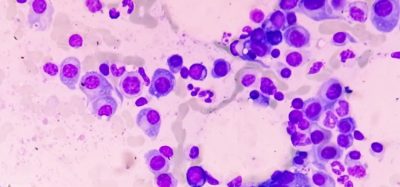Genomic effect of cancer treatment in clinical trials
Posted: 10 October 2018 | European Pharmaceutical Review | No comments yet
A research team from The University of Pennsylvania have analysed the genomic effect of a cancer drug currently in clinical trials…


ATR inhibitors are currently in clinical trials for a variety of cancers, including lung, colon, lymphoma, pancreatic and leukaemia. The University of Pennsylvania recently opened a trial, led by Dr Fiona Simpkins, Associate Professor of Obstetrics and Gynecology, to investigate the benefit of combining ATR inhibitors with PARP inhibitors for the treatment of recurrent ovarian cancer.
“ATR inhibitors may help PARP inhibitors work more effectively during different clinical situations, including overcoming PARP inhibitor resistance,” Prof Simpkins said.
Associate Professor of Cancer Biology, Dr Eric Brown in the Perelman School of Medicine at the University of Pennsylvania led the research team in analysing DDR, DNA Damage Response.
DRR include ATR and PARP enzymes, and is the process used by the cancer cells to survive high levels of replication stress and defects in DNA repair. As cancers rely on the DDR for survival, stopping this process with ATR inhibitors is more toxic to cancer cells than normal cells. As such, DDR drugs such as ATR and PARP inhibitors may be more effective than standard therapies.
Using both mouse and human cells, the research team identified over 500 sites in DNA that require the enzyme ATR checkpoint kinase to not break when they are replicated. These sites are characterized by stretches of repeating DNA building blocks, which impede the normal replication of DNA. The harmful impact of these “genomic potholes” are lessened when the ATR kinase goes to work as a virtual “shock absorber” to smooth over the bumpy parts of replication. Importantly, inhibitors of ATR cause DNA to break, which is key to the anti-cancer effects of this drug.
“Customized clinical use of DDR inhibitors is frequently based on changes in the level or function of specific proteins in cancer cells and this approach aims to improve treatment efficacy,” Prof Brown said. “However, it is possible that the effects of ATR inhibitors may not be solely based on lethal interactions with defective gene expression in cancer cells, but also on the state of the repetitive DNA that relies on the ATR enzyme for stability.”Dr
“ATR inhibitors may help PARP inhibitors work more effectively during different clinical situations, including overcoming PARP inhibitor resistance,” Prof Simpkins said.
The Penn team plans to monitor these sites of repetitive DNA as part of the ATR inhibitor combination clinical trial, which seeks to identify biomarkers that will maximize treatment efficacy.
The study was published in Molecular Cell.
Related topics
Analytical techniques, Clinical Development, Clinical Trials, Research & Development (R&D)
Related organisations
Related people
Associate Professor Eric Brown, Associate Professor Fiona Simpkins









